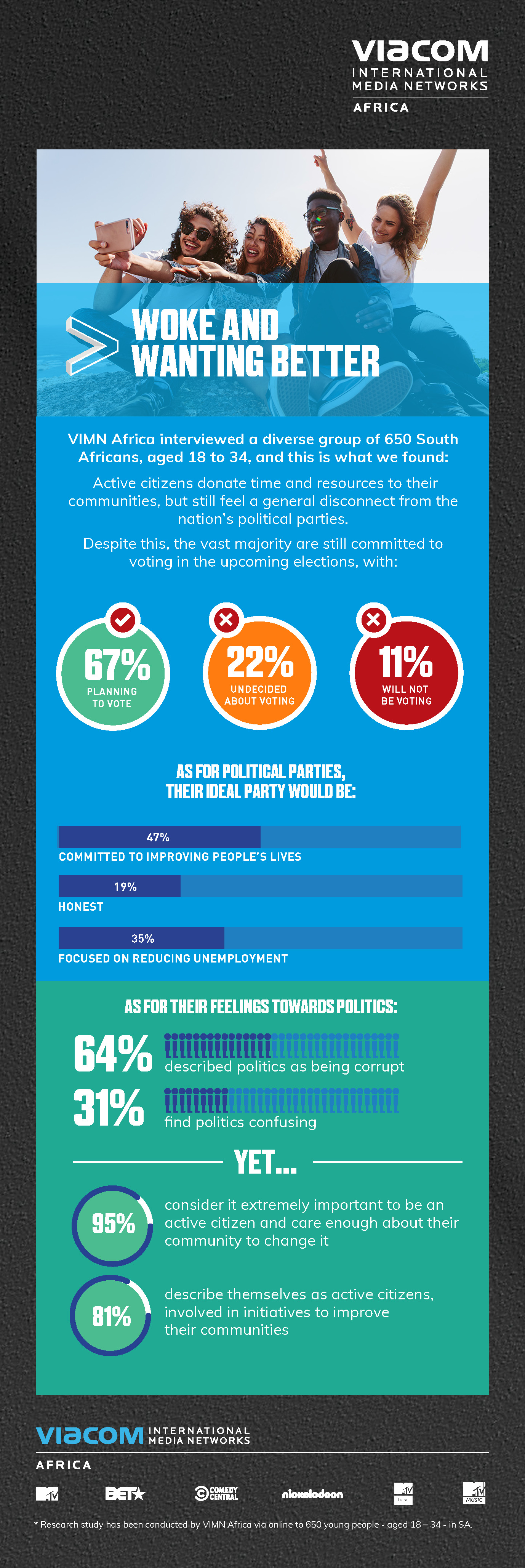Young South Africans Are Woke, Want Better, and Plan to Vote in Their General Elections
When South Africans vote in their general elections on May 8th, the largest youth demographic in the country’s history will be participating. This generation will feel the repercussions of this vote most powerfully.
To shine a light on youth sentiments surrounding the election, Viacom recently conducted an online survey of 650 South Africans aged 18 to 34. The goal was to unpack their perceptions of local politics as well as their greater concerns for the country. Here’s what we found:
The majority of young South Africans take some interest in politics. While just over half said they try to stay up to date on politics even if it’s not a priority, a hefty 27% said they are very interested in politics, regularly consume news about political issues, or are actively engaged in politics. Less than 20% of young adults claimed to either avoid politics or have no interest. Just 3% were unaware of the elections.
Most young South Africans intend to vote – many for the first time. Two-thirds (67%) of respondents said they planned to vote, many for the first time because of their age. About a fifth (22%) were still undecided, mainly because they didn’t believe their vote would count and they didn’t feel represented by any party.
Unemployment is their top policy concern. In political leaders, they value honesty and a commitment to improving people’s lives. When asked which policy issues are most important to them, unemployment came out first (35%), along with youth status and education system reform. Economic concerns trumped crime in every case. On political parties, 47% said a commitment to improving people’s lives was the most important characteristic of their ideal party. Honesty was also identified by nearly 20% as their number one priority.
They’re disenchanted with their country’s political leaders. When asked to describe how they feel about their politicians, words like “mistrust,” “frustration” and “worry” came up. Adjectives such as “corrupt” (64%), “based on connections” (40%), and “confusing” (31%) also dominated when participants were asked to describe politics.
But borne of their disillusionment is a powerful commitment to their communities. The vast majority of participants (95%) considered it very to extremely important to be an active citizen who cares enough about their community to change it. Over 80% of youth, in fact, described themselves as active citizens involved in initiatives to improve their communities. These efforts range from charity donations, small business job creation and clean-up drives to youth development through mentoring, education and sports.


